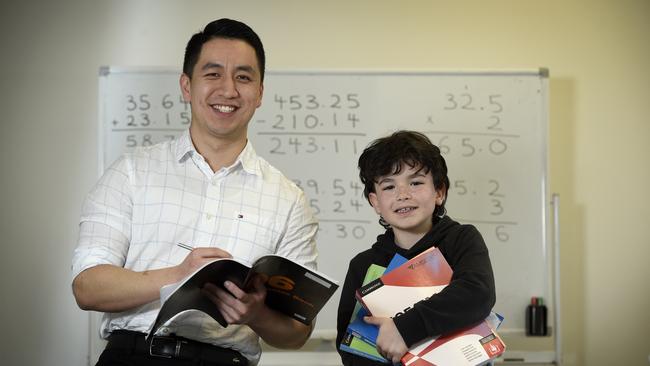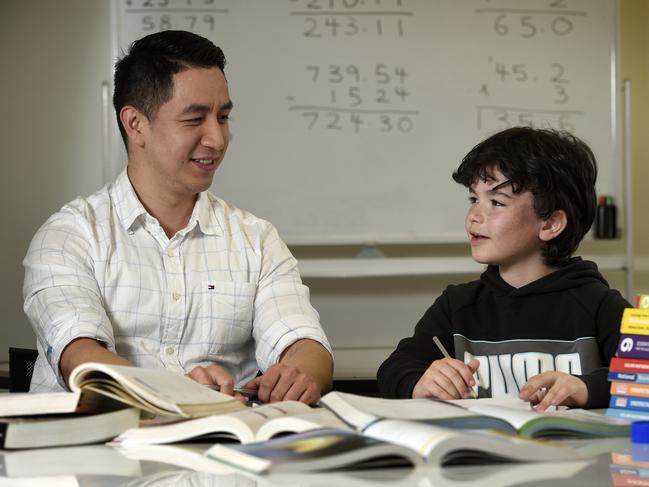Parents fork out $8000 a year for tutoring as demand surges in Victoria
More Victorian parents are turning to expensive tutoring services to give their children a “leg up” but there are concerns it is driving a gap between families that can and can’t afford tuition.

Education
Don't miss out on the headlines from Education. Followed categories will be added to My News.
Parents are forking out thousands of dollars on tutoring a year on top of school fees to give their kids a “leg up” on scholarships and tests.
Tutoring services say parents’ concerns around “lost learning years” during the pandemic have led to a spike in enrolments in Victoria.
Cluey Learning has seen enrolments triple from 2019 to 2022, with almost 8000 students now statewide.
VCE programs account for around 30 per cent of all secondary enrolments at the service, with the most popular subjects being mathematics, English and Chemistry.

Tutoring on average begins at $50 per hour for novice “homework helpers” and can reach up to $200 for subject matter experts.
This equates to $2000 to $8000 a year for a single tutoring session a week, for 40 weeks in a school year.
Bayside Academics co-founder Ryan Ou said enrolments had surged by about 15 per cent every year since starting the business in 2017.
Mr Ou said more parents were putting their children in tutoring to make up for “long periods spent doing online learning”.
“Parents are definitely wanting more tutoring after Covid, since a lot of students didn’t respond well to online learning and have effectively missed one or two years of important material,” he said.
“Quite a lot of students are coming to us at secondary level, and we’ve had to go back and help build up certain foundations which they should’ve grasped by the end of primary.”
Edworks founder Gregory Nicholson said more families are seeking assistance with scholarships and exams.
“In seeing such skills as integral to their child’s success, parents recognise that students can apply these skills to scholarships/entrance exams, NAPLAN and of course, VCE,” he said.
But he said there are also more parents who want their children to develop a range of thinking skills beyond passing exams.
Dr George Variyan, a lecturer in the Faculty of Education at Monash University, said more parents are “hothousing” their children – a results-driven form of education intended to accelerate their learning, often from a very early age.
“Private tuition is increasingly being taken up from primary school age,” he said.
“With growing insecurity about the future for kids, I think parents are increasingly trying to maximise their dollar by trying to get a leg up for their children.
“And there’s evidence that it’s impacting on wellbeing and increasing the pressure.”
Senior Lecturer in Education at Swinburne University Dr Catherine Hartung said schools have begun to “normalise and encourage families to use private tuition to supplement literacy and numeracy education”.
RMIT University Professor Ange Fitzgerald said this creates additional tension for students and their families.
“There are concerns around the pressure this puts on students to be engaging in formal study during times that could be used for leisure and other extra-curricular activities that aren’t academically oriented,” she said.
Prof Fitzgerald said tutoring creates inequality across the education sector, between families that are and aren’t able to afford tuition.
Australian Catholic University inclusive education expert Dr Melissa Cain said the use of tutors highlighted concerns about the effectiveness of students’ school-based learning programs.
“If students are relying on tutoring to meet their learning needs then our system isn’t working as it should,” she said.
Education Minister Natalie Hutchins said: “Our Tutor Learning Initiative has put tutors in every Victorian government and low-fee non-government school across Victoria – giving students the direct and intensive support they need to help them reach their potential at school.”





